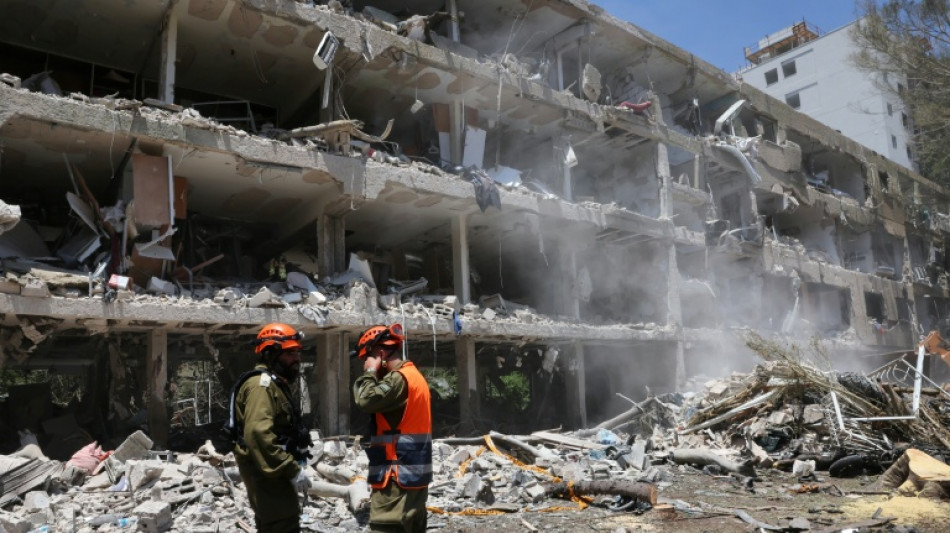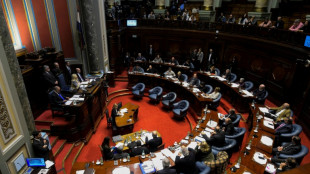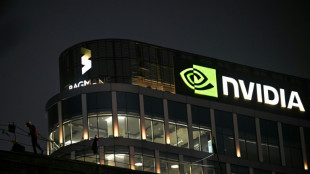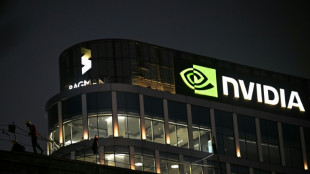

Tehran hit by Israeli attacks, vows response to US strikes
Loud explosions rocked Tehran on Monday as Israel said it struck "regime targets" in the city, escalating tensions a day after US air strikes on Iran's nuclear facilities.
Iran, in turn, fired missile barrages at Israel and vowed retaliation against the United States, as both sides intensified attacks on the war's 11th day.
An Iranian news agency said Israel struck Fordo -- a key nuclear enrichment facility buried deep in the mountains south of Tehran. The previous day, the United States hit the site with "bunker buster" bombs in support of its ally Israel.
"The aggressor attacked the Fordo nuclear site again," the Tasnim agency reported, quoting a provincial official.
President Donald Trump boasted Sunday's US strikes had "obliterated" Iran's nuclear capabilities, but other officials said it was too soon to assess the impact on Iran's nuclear programme, which Israel and some Western states consider an existential threat.
Aerial assaults meanwhile raged on, with sirens sounding across Israel and AFP journalists reporting blasts were heard over Jerusalem.
The Israeli military said it had struck missile sites in western Iran, "six Iranian regime airports" across the country, and unspecified "military targets" in the capital.
An AFP journalist in Tehran reported hearing loud explosions in the city's north, and the Iranian Red Crescent said an Israeli strike hit near its building in the same area.
Defence Minister Israel Katz said the Israeli military was "carrying out strikes of unprecedented force against regime targets and agencies of government oppression in the heart of Tehran", adding to speculation that Israel may seek to topple Iran's clerical leadership.
Iranian media said Israel's strikes hit a power supply system in Tehran, triggering outages.
In Israel, the national electricity company reported "damage near a strategic infrastructure facility" in the south that disrupted power supply, without naming the location or specifying the cause.
Some details of the damage in Israel are barred from publication due to military censorship rules.
Footage shared by the Israeli military of what it said were the latest airport strikes showed grainy black-and-white footage of fighter jets and helicopters explode upon impact.
Israeli strikes on Iran have killed more than 400 people, Iran's health ministry said. Iran's attacks on Israel have killed 24 people, according to official figures.
- 'Extremely dangerous' -
After the US strikes, global markets reacted nervously, with oil prices jumping more than four percent early Monday but dipping later in the day.
China urged both Iran and Israel to prevent the conflict from spilling over, warning of potential economic fallout.
Iranian armed forces spokesman Ebrahim Zolfaghari said on state television that the US "hostile act", following more than a week of Israeli bombardments, would "pave the way for the extension of war in the region".
"The fighters of Islam will inflict serious, unpredictable consequences on you," he warned.
Oman, a key mediator in the stalled Iran-US nuclear talks, condemned the US strikes and called for calm.
Iran's foreign ministry accused Washington of betraying diplomacy.
"Future generations will not forget that the Iranians were in the middle of a diplomatic process with a country that is now at war with us," said ministry spokesman Esmaeil Baqaei.
US Secretary of State Marco Rubio called on China to help deter Iran from closing the Strait of Hormuz, a chokepoint for one-fifth of the world's oil supply.
The European Union's foreign policy chief Kaja Kallas said closing the strategic strait would be "extremely dangerous".
With Iran threatening US bases in the region, the State Department issued a worldwide alert cautioning Americans abroad.
In Bahrain, home to a major US base, the US embassy said it had "temporarily shifted a portion of its employees to local telework" citing "heightened regional tensions".
- Trump touts 'regime change' -
After the Pentagon stressed the goal of American intervention was not to topple the Iranian government, Trump openly toyed with the idea.
"If the current Iranian Regime is unable to MAKE IRAN GREAT AGAIN, why wouldn't there be a Regime change???" Trump posted on his Truth Social platform.
Hours later he posted: "Monumental Damage was done to all Nuclear sites in Iran... Obliteration is an accurate term!"
At a Pentagon press briefing earlier in the day, top US general Dan Caine said "initial battle damage assessments indicate that all three sites sustained extremely severe damage."
Israeli Prime Minister Benjamin Netanyahu, meanwhile, said his country's bombardments would "finish" once the stated objectives of destroying Iran's nuclear and missile capabilities have been achieved.
"We are very, very close to completing them," he said.
Rafael Grossi, director of the International Atomic Energy Agency (IAEA), told an emergency meeting of the UN Security Council that craters were visible at the Fordo facility, but it had not been possible to assess the underground damage.
Iran has consistently denied seeking an atomic bomb, and Grossi has said there was no evidence to suggest so despite the Islamic republic's advanced uranium enrichment and other activities.
The IAEA said on Monday Tehran had informed it of "special measures to protect nuclear material" when the Israeli campaign began.
The US agency also said it was seeking access to Iranian nuclear sites to "account for" stockpiles of highly enriched uranium.
Iranian Foreign Minister Abbas Araghchi, who was due to meet with Russian President Vladimir Putin on Monday, had accused the United States of deciding to "blow up" nuclear diplomacy with its intervention in the war.
burs-ami/dv
劉-T.Liú--THT-士蔑報




